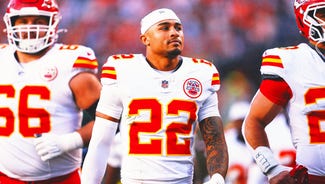
Threat of lockout worries draft hopefuls
Prodded late last week about his thoughts on a possible lockout by owners, former Alabama defensive lineman Marcell Dareus, at the podium for the media grilling that accompanies the annual NFL job fair, responded: "I hope it's dissolved."
That malapropism likely will transform into a self-fulfilling prophesy by the end of the week, when the NFLPA decertifies or "dissolves" in a last-ditch effort to avoid a lockout. But it also symbolized the lack of clarity that many draft prospects at the combine possessed about what is about to transpire with their careers. No doubt, the 330 players present in Indianapolis were prompted by the players association on what is coming down, the scary ramifications of what it could mean to them.
But until the lockout becomes reality — and the window of opportunity for them to exhibit their value to a team becomes perhaps a two- or three-week audition instead of several months of tutelage through minicamps and OTAs — the full impact of a work-stoppage is just words for now.
It would be hyperbole to suggest that the labor situation hung like a pall over Indy, although it was difficult to have any kind of conversation with a team official or a veteran player without the subject quickly bubbling to the surface. But in the room in the Lucas Oil Stadium bowels where prospects were herded for media sessions, the potential lockout drew mostly shrugged shoulders.
"You hope," said University of California defensive end Cameron Jordan, clearly one of the brightest and most engaging prospects of the week, "it doesn't happen at all. If it does, well, it's too bad. But nobody's really gone through anything like this before. It's hard to say what it means."
Not even Jordan's famous father — former NFL tight end Steve Jordan, who played 13 seasons with the Minnesota Vikings and was named to six Pro Bowl games — really can offer much advice on this one. Somewhat ironically, Steve Jordan also entered the NFL in the year of a work stoppage; his rookie season, 1982, was delayed by a players' strike that truncated the season to nine games. But that was the NFLPA rank-and-file pulling the plug on the season, not owners, and the pending lockout offers a whole new set of rules.
Most of which haven't sunk in yet on would-be first-year players.
"What I know, from the (briefings) I've had, is that it's not going to be the usual stuff a rookie goes through," acknowledged highly-regarded Georgia wide receiver A.J. Green. "You're going to be counted on to do a lot of stuff individually, because there aren't going to be team workouts. It's going to kind of be, 'OK, every man for himself.' No support group. The whole thing is kind of scary."
Maybe not quite as scary as the prospect of drafted players being left to their own devices. One potential plus is that the rookies won't have big money in their pockets — because while franchises can select them, they won't be able to sign players, until there is a new collective bargaining agreement — and so the temptation to squander new-found wealth probably won't be as great. On the flip side, the NFL won't be able to provide baby-sitters, either, to make sure the rookies read playbooks, hit the weight room, adhere to team rules and methodologies.
Said Kansas City general manager Scott Pioli: "All the rookies in the NFL essentially will be equal. They'll all be starting from the same place, wherever that is. Whatever happens, the rules will be the same for everybody."
It would be Pollyannaish, though, to assume every rookie will react the same way with time on his hands.
One NFC general manager in Indianapolis assessed that the 2011 pool of prospects his team interviewed might be the brightest with which the club ever dealt. He and his coaches might also hope the group is the most diligent and self-motivated.
Because if the CBA isn't miraculously dissolved, er, resolved by the end of the week, clubs will require those qualities of their rookies classes. Maybe more than 40-yard dash times, Wonderlic scores, or quickness in the 3-cone drill, those attributes might be most important.










